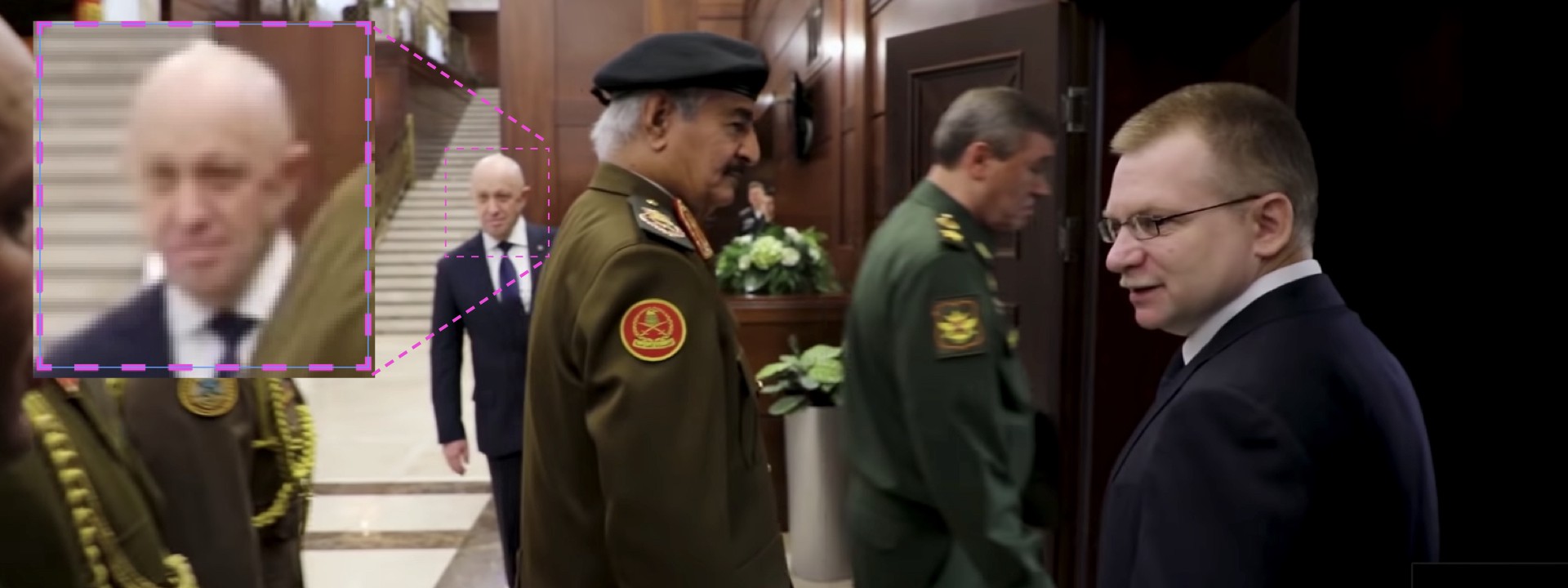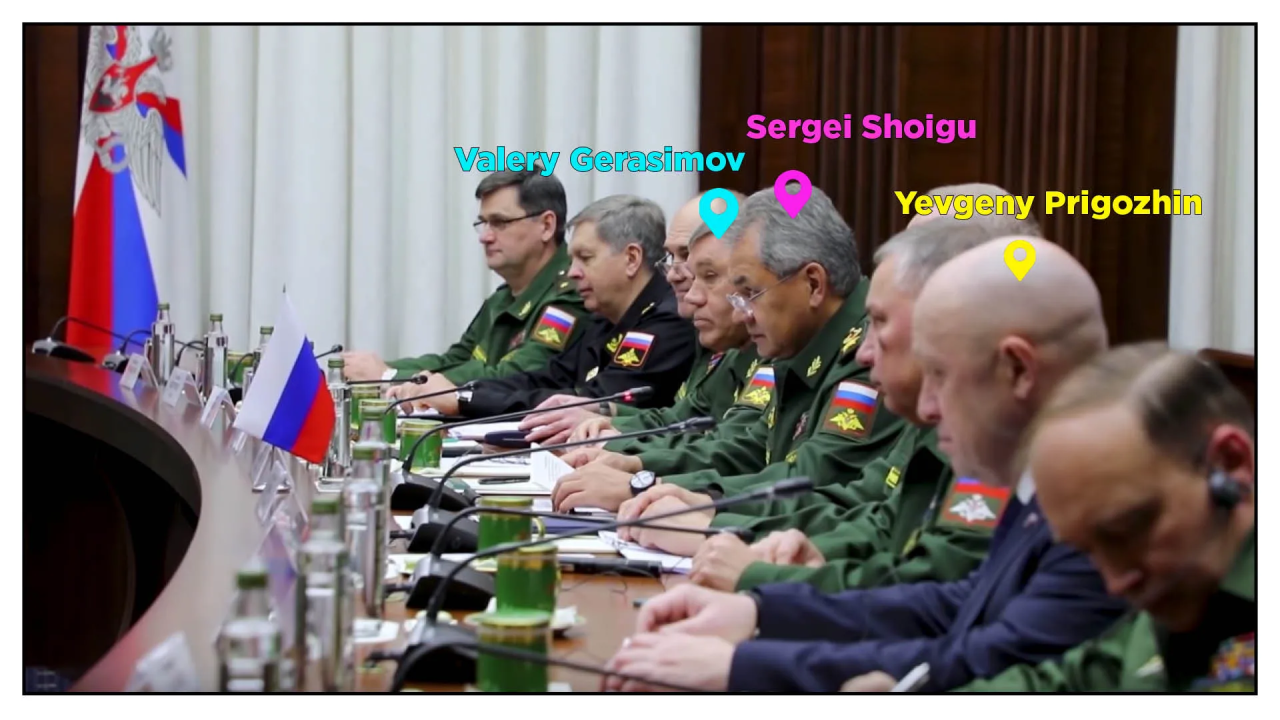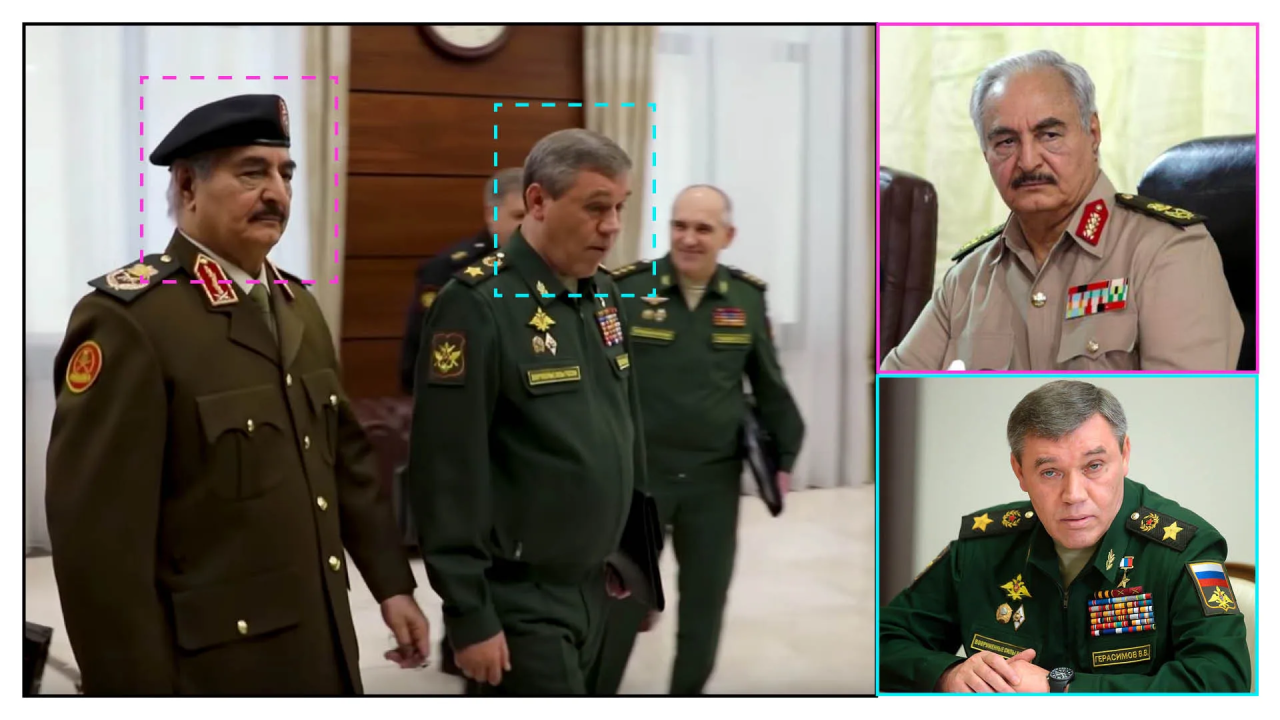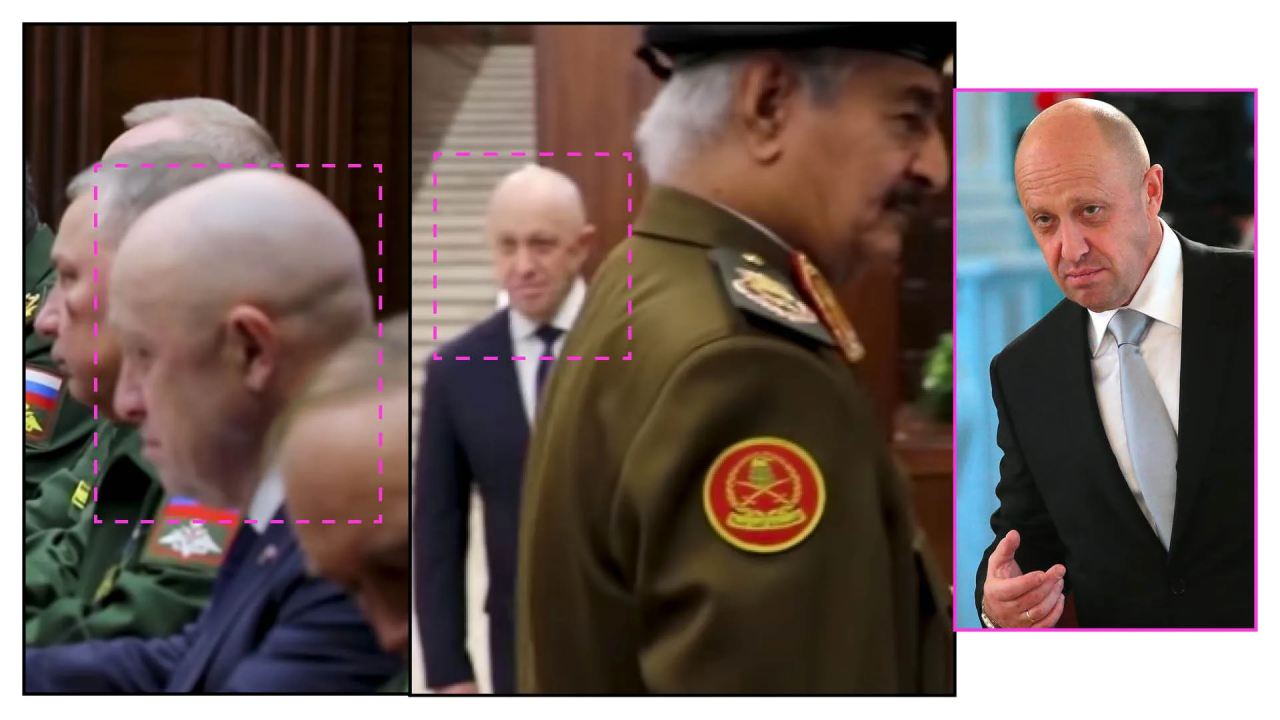#PutinAtWar: Prigozhin Meets Libyan Military Officials
Russian oligarch responsible for foreign influence operations and mercenary company met with Libyan strongman.
#PutinAtWar: Prigozhin Meets Libyan Military Officials

BANNER: (Source: YouTube / مكتب الاعلام — القيادة العامة للقوات المسلحة الليبية)
Libyan Field Marshal Khalifa Haftar recently traveled to Moscow for meetings with Russian military officials. One official meeting was attended by businessman Yevgeny Prigozhin.
Yevgeny Prigozhin is a Russian millionaire often dubbed “Putin’s Chef” due to his catering company’s ties to Kremlin. Prigozhin oversees the Wagner Group, which a euphemistic name for a private company of Russian mercenaries that have deployed in key conflicts of Russian interest from Ukraine to Syria. The oligarch also allegedly financed and oversaw the Internet Research Agency, also known as the IRA or “St. Petersburg Troll Factory”, which produced disinformation across Russia, Europe, and the United States. A criminal indictment was filed in the United States by Special Counsel Robert Mueller against Prigozhin for financing influence operations targeting the 2016 U.S. presidential elections.
Even with all of his extra-curricular activity away from catering business, Prigozhin appeared to have an interest in Libya as well. Russia reportedly already has a foothold in Libya, including two military bases and an undisclosed number of mercenaries, but open source data to prove it is currently scarce.
The Meeting
On November 7, 2018, Russia’s defense minister Sergei Shoigu together with other high-ranking Russian generals met with Khalifa Haftar, commander of his self-styled Libyan National Army (LNA). The official purpose of the meeting was to discuss the ongoing armed crisis in Libya and the security situation in the region, but the meeting likely had a more specific agenda, which explains Prigozhin’s attendance. Prigozhin does not serve the Russian government in an official capacity, and his presence at the meeting was not reported by the Russian Ministry of Defense.
Despite the fact that the Kremlin denied taking an active part in the Libyan conflict, Prigozhin’s presence in the meeting suggested Wagner mercenaries’ involvement in the region.
Video Analysis
On November 7, Libyan Ministry of Defense published a video on its official YouTube channel, presenting excerpts of the meeting with Russian Defense Minister Sergei Shoigu and Valery Gerasimov, Chief of Staff of Russia’s Armed Forces. Prigozhin’s presence in the meeting was quoted by various media outlets and Twitter users, which were further confirmed by visual analysis of the video.
The video confirmed that the three of the reported Russian officials were present at the meeting.

Russia’s Chief of General Staff Valery Gerasimov was amongst the first to greet Haftar before the meeting.

Yevgeny Prigozhin was recorded welcoming Libyan officials at the door and sitting at the table throughout the meeting. His appearance and position at the meeting suggested his involvement in the Libyan matter.

Russia In Libya
After three years of conflict, Haftar is currently in control of more than two thirds of Libya, including a large portion of the country’s oil infrastructure. While Haftar consolidates further control of the country, he has also noted interest in Russia’s increased involvement in Libya.
Libya’s geographic position makes it of crucial strategic importance to both the United States and Europe, and the security threat that Libya poses cannot be ignored. Southern European region faces illegal migration, criminal activity, and terrorism challenges from Libya, which serves as largest passage for migrants to Europe. Geographically, it is a gateway to and from Africa and on its stability is dependent on the neighboring African countries. Furthermore, oil production in Libya can have a drastic effect on oil prices globally.
Russia reportedly has two existing bases in Libya and deployed troops and equipment to Libya, including S-300 (NATO classification: SA-10 Grumble) surface-to-air missile systems and Kalibr cruise missiles. The two known Russian bases in Libya are located in the cities of Benghazi and Tobruk.
An undisclosed number of Wagner mercenaries are allegedly already based in Libya, but the open source evidence to back-up these claims is scarce.
On November 19, a Russian veteran organization appealed to the International Criminal Court (ICC) with regard to the Kremlin’s use of the mercenaries around the world. While the outcome of the case remains undetermined, complaint alleges the full scope of Russian mercenary activity around the globe, including eastern Ukraine, Syria, Libya, the Central African Republic, Gabon, Sudan, South Sudan, Yemen, and other countries. The source of the complaint is also important, as many Wagner mercenaries have experience in the Russian military.
Conclusion
Open source evidence revealed that Yevgeny Prigozhin, who is closely linked with the Wagner mercenary group, attended a meeting between Russian and Libyan military officials. Prigozhin’s presence at the meeting was not reported by the Russian Ministry of Defense.
This observation serves as a sign that Wagner mercenary group has an interest in the Libya. Although open source evidence proving Wagner’s presence in Libya are currently scarce, it is likely only a matter of time before it will surface.
It is another example of the service that the Wagner Group provides to the Kremlin by conducting kinetic military operations to serve Russian interests, while simultaneously providing deniability for those operations to the Kremlin. Prigozhin’s presence at an official bilateral meetings of the Russian Ministry of Defense makes the connection explicitly clear.
@DFRLab will continue to monitor significant Russian operations, exercises and other military developments.
Cite this case study:
Lukas Andriukaitis, “#PutinAtWar: Prigozhin Meets Libyan Military Officials,” Digital Forensic Research Lab (DFRLab), November 24, 2018. https://dfrlab.org/2018/11/24/putinatwar-prigozhin-meets-libyan-military-officials.

